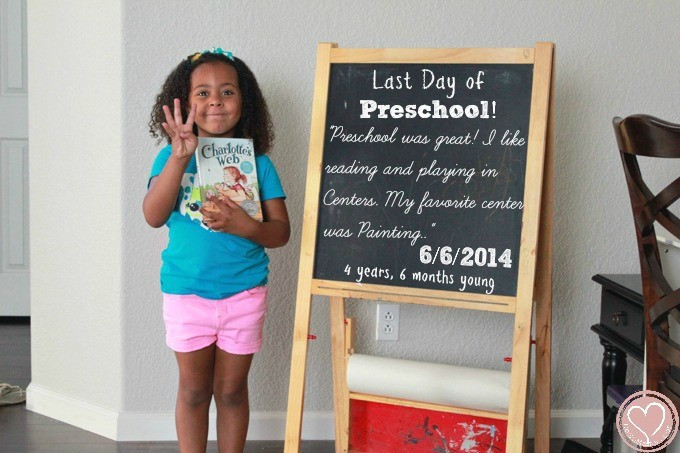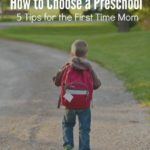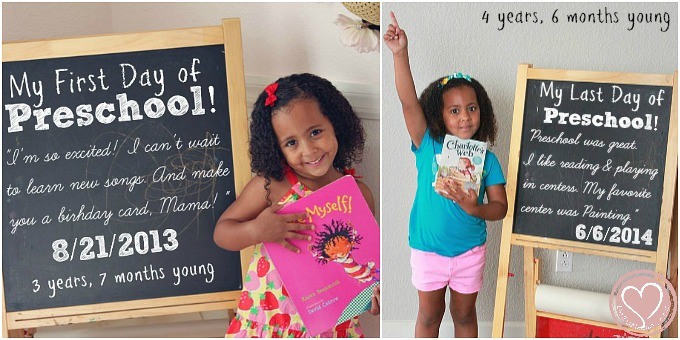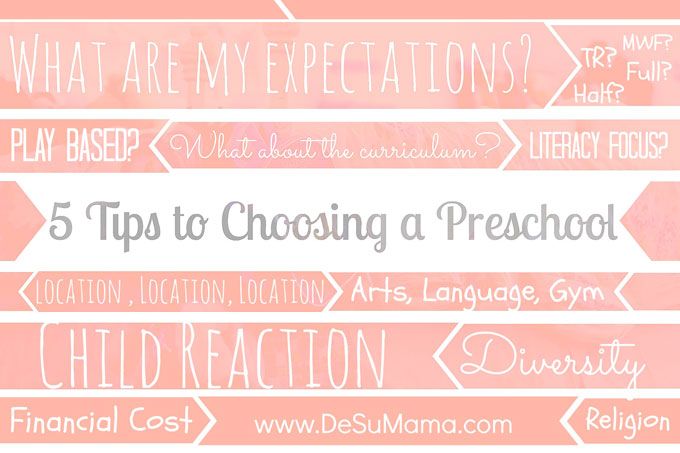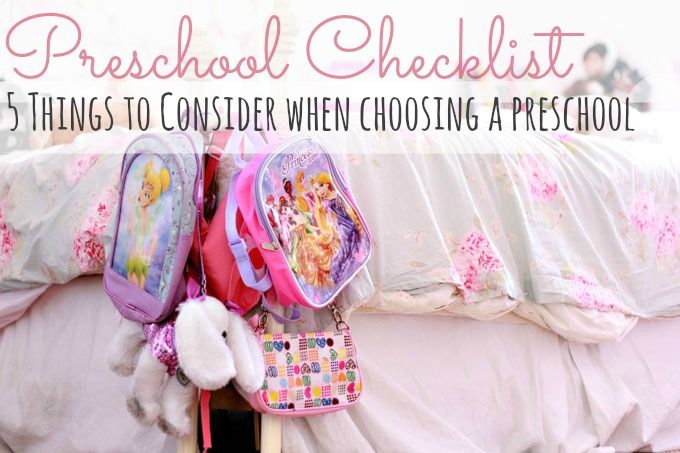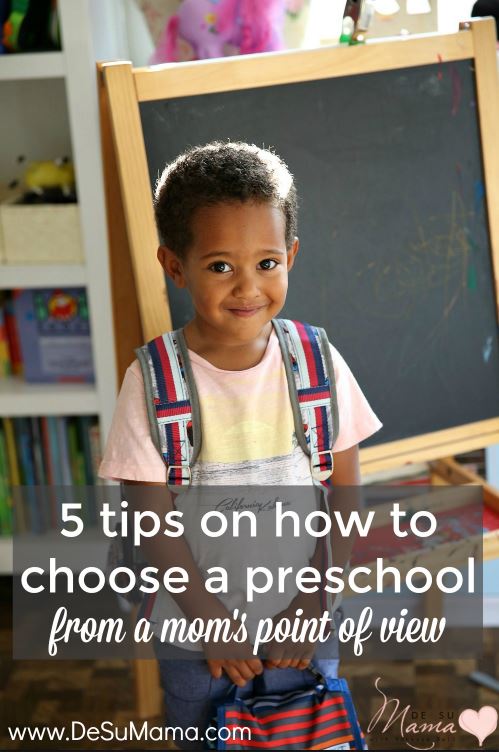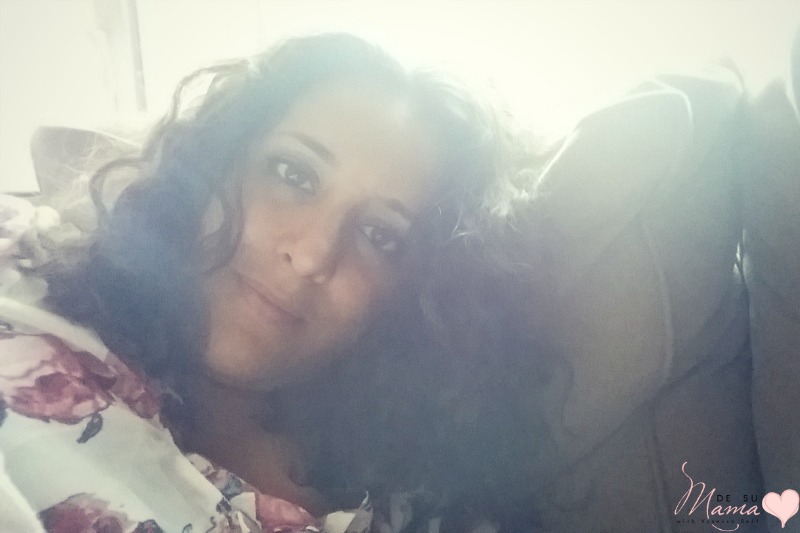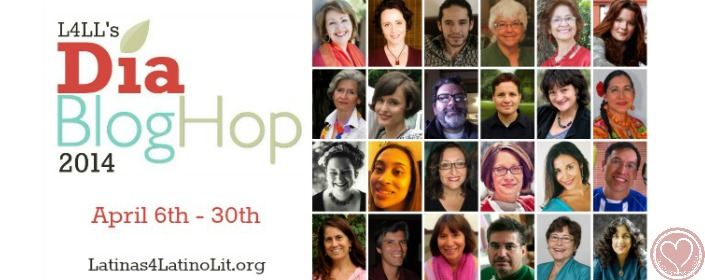For parents enrolling their kids in school the first time, figuring out how to choose a preschool can be daunting. Research on the best preschools near me, numerous tours, late-night conversations about what is really best for our child can feel overwhelming. I’m not sure we ever found the “perfect” school, but eventually, we consider all factors and made a decision.
How to Choose a Preschool
During this process, I came up with 5 considerations, questions and conversation starters for parents to ask early education professionals. I kept this preschool checklist with me while on every tour to help me stay focused on topics I wanted to discuss. The checklist helped me zero in on my instincts and intuition, which is something we should remember to do when so much information is being thrown at us. In the end, the choice is truly your own and should be one that suits your family and your child.
Related: The Best Backpacks for Kindergarten
What to Look for in a Preschool
Types of Preschools
Before we even start our search for a school, we should consider our expectations. Do we understand preschool vs daycare? Do we need childcare? Are we just looking for socialization? Do we expect our preschooler to be reading? Or is developmental appropriate learning suitable? Is our style flexible, agreeable to a play-based curriculum of a combination of self-guided and teacher-led play activities? Or are we looking for structure and worksheets? Definitely ask what their curriculum is and do research on it by name.
There is no right answer; just do some heavy thinking. I will say that when our family started this journey we thought we knew our objectives, but after tours and research, we ended up with a program that suited our whole child, not just academically.
Logistics
When thinking of how to choose a school, you shouldn’t overlook logistics. Location is always a big deal. How far is the school from your home? How long does the commute take? Do the times of the preschool program work for you (is 8 am too early? Does 9 am work better?). Who will drop off/pick up? If the preschool is a significant ways from your home, are there things in the area that can occupy your time? Do you have other children to consider while establishing your new routine? Be certain that, in case of an emergency, you know how long it takes to get to your child.
Logistics was a consideration I didn’t originally worry about, but while conducting tours, it proved to be a big deal.
Related: Inside a Bilingual Kindergarten Classroom
Ideology + Learning Styles
The ideology of a school is intricately ingrained in their day to day routines. You want to be sure their values align with those of your family. The advice I was given was akin to “your gut feeling” or “you’ll know when you walk in” by observing teacher interaction and the set up of the classroom. But also, in my research, I learned that it might be necessary to ask questions such as do play-based learning? do you have specific political views that are evident in your curriculum? Do you embrace the arts? Do you encourage bilingualism or offer second languages? Do you value diversity, or is that not a focus at all? Is it a religious-based school? Do you, at the very least, understand the religion and what your child will be exposed to? How transparent is the school? Do they view this experience as a partnership, or are they 100% in charge of your child’s education?
Ask for their philosophy BY NAME and then research those core values.
Lastly, I found that this question very telling in a school’s ideology: What are your procedures for discipline?
Be aware of how a school intends to deal with negative behavior, and be especially sure that those techniques are in keeping with your family’s.
Continuity of Education
We live in a State where government-funded preschool is not available (if I am wrong, PLEASE let me know!). Once in Pre-Kindergarten, there are some public schools that offer Pre-K programs; admission is lottery-based and there is still a fee. And then, once in Kindergarten, it is only half a day for three/four hours. Again, some public schools offer a full-day option (at a cost, of course). Unfortunately, the public school we are zoned for doesn’t offer full-day kinder. So, I would have to get a zone variance. Confused yet? Ya, me too.
Continuity of all things is important for child development. Stability of their home life, loving family that they can depend on, a world that they understand because they’ve experienced it before. And education is no different.
When choosing Alina’s school, I considered whether or not we would be able to continue her education in that particular setting. I not only toured the three-year-old rooms, and spoke with those teachers, but also Pre-K (and even Kinder, in some cases). I looked at cost, not only for this academic year but for the following two. Was this placement something we could afford until at least through kindergarten? The last thing I want is for Alina to fall in love with her teachers, classmates, and school setting, and we have to remove her for a lack of consideration of long term cost. Life happens, and sometimes change cannot be avoided, but considering continuity of education with what you can control should not be overlooked.
In addition, I am all for public schools. However, since my State doesn’t meet my expectation of Early Childhood Learning, I don’t really have a choice but to go private. Once in elementary school, Alina will likely go to the school we are zoned for.
Child Reaction
Some parents will think I’m crazy, but we took our daughter to every single tour and open house. I am so happy we did. For as much as I was looking around me, I kept a close eye on how my child reacted. How was she engaging with their environment? Did she jump right in? Stay close by my side? How did the staff react to her? Did they acknowledge her by name? How did the other kids react to her presence? Were they mean? Did they smile? Kids are tiny mirrors, and model behaviors they see, so if the class ushered her in with kindness, I knew the teacher was modeling that behavior. Obviously, this all depends on the time you visit the classroom (and many other factors), so use your instinct. Kids are beautiful, honest creatures. So if they are nasty to a newcomer, my instinct would have guards up high.
Before one particular tour, I thought for sure we had found our placement based on the research I conducted, but after watching our girl in the setting, it was crossed off the list. She literally made me hold her the entire 40-minute tour. I didn’t care what they thought they could teach my kid. If she wasn’t happy from minute one on the campus, that placement was not a good fit for us.
And that’s it! Have fun, good luck and may you find your “perfect” school placement!

